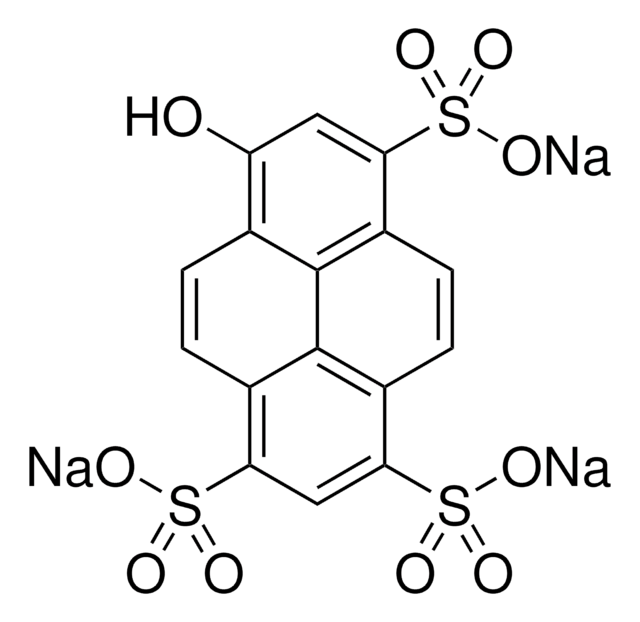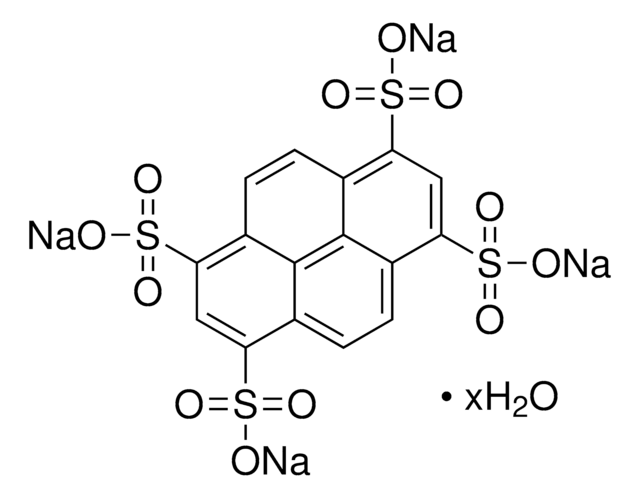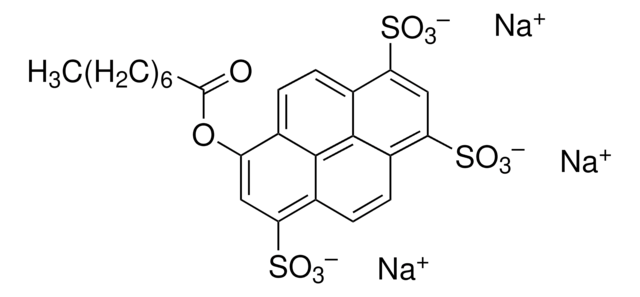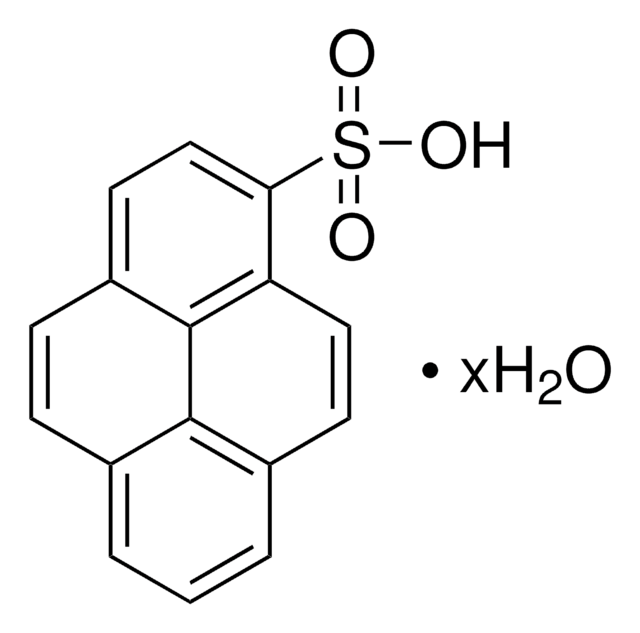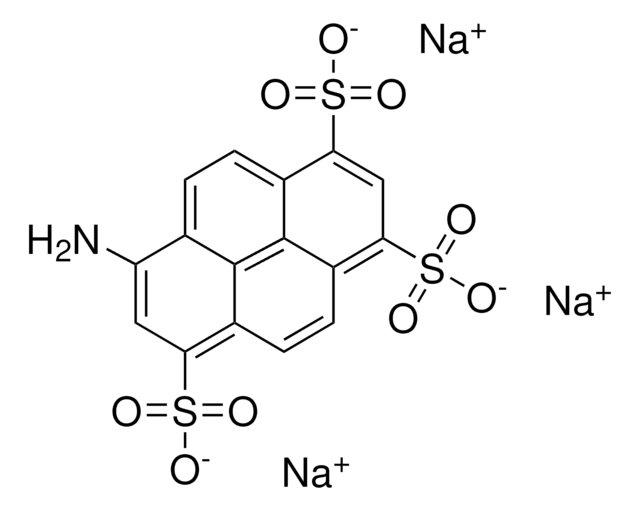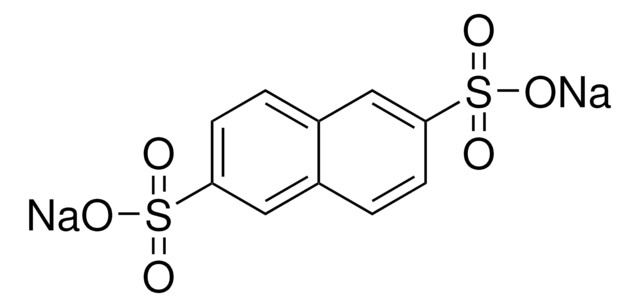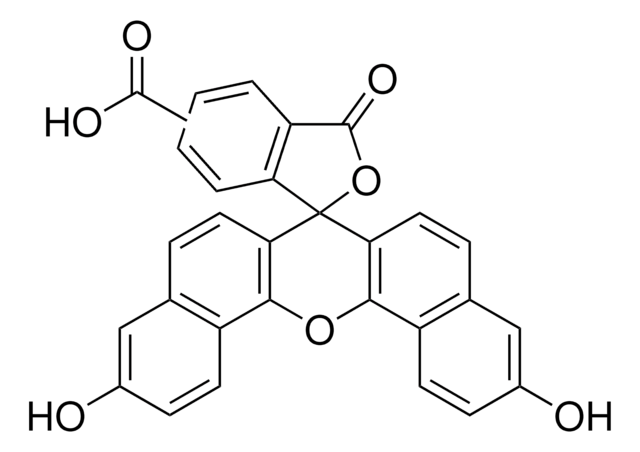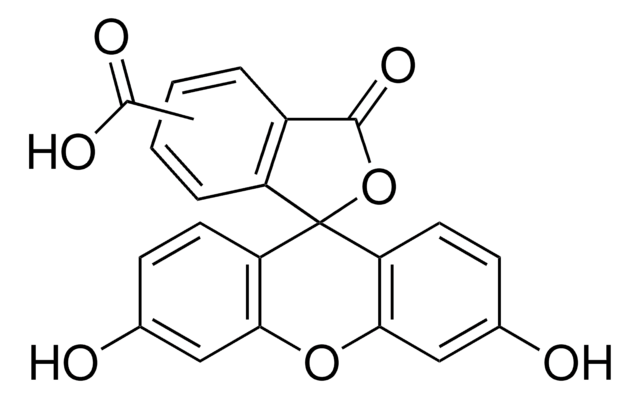Wichtige Dokumente
37920
6,8-Dihydroxy-1,3-pyrendisulfonsäure Dinatriumsalz
BioReagent, suitable for fluorescence, ≥97.0% (HPCE)
Synonym(e):
DHPDS
About This Item
Empfohlene Produkte
Produktlinie
BioReagent
Qualitätsniveau
Assay
≥97.0% (HPCE)
Form
powder
pKa
7.33
8.53
mp (Schmelzpunkt)
≥250 °C (lit.)
Löslichkeit
DMF: soluble
H2O: soluble
methanol: soluble
Fluoreszenz
λex 405 nm; λem 456 nm in 0.1 M citrate pH 3.0
λex 458 nm; λem 498 nm in 0.1 M Tris pH 8.0
Eignung
suitable for fluorescence
SMILES String
[Na+].[Na+].Oc1cc(O)c2ccc3c(cc(c4ccc1c2c34)S([O-])(=O)=O)S([O-])(=O)=O
InChI
1S/C16H10O8S2.2Na/c17-11-5-12(18)8-2-4-10-14(26(22,23)24)6-13(25(19,20)21)9-3-1-7(11)15(8)16(9)10;;/h1-6,17-18H,(H,19,20,21)(H,22,23,24);;/q;2*+1/p-2
InChIKey
JISMNCQKTAIERN-UHFFFAOYSA-L
Anwendung
Verpackung
Sonstige Hinweise
Sie haben nicht das passende Produkt gefunden?
Probieren Sie unser Produkt-Auswahlhilfe. aus.
Signalwort
Warning
H-Sätze
Gefahreneinstufungen
Eye Irrit. 2 - Skin Irrit. 2 - STOT SE 3
Zielorgane
Respiratory system
Lagerklassenschlüssel
11 - Combustible Solids
WGK
WGK 3
Flammpunkt (°F)
Not applicable
Flammpunkt (°C)
Not applicable
Persönliche Schutzausrüstung
dust mask type N95 (US), Eyeshields, Gloves
Hier finden Sie alle aktuellen Versionen:
Besitzen Sie dieses Produkt bereits?
In der Dokumentenbibliothek finden Sie die Dokumentation zu den Produkten, die Sie kürzlich erworben haben.
Kunden haben sich ebenfalls angesehen
Artikel
Nitric oxide (NO) as a signal transporter in neurons, endothelial cells and in the immune system.
Unser Team von Wissenschaftlern verfügt über Erfahrung in allen Forschungsbereichen einschließlich Life Science, Materialwissenschaften, chemischer Synthese, Chromatographie, Analytik und vielen mehr..
Setzen Sie sich mit dem technischen Dienst in Verbindung.